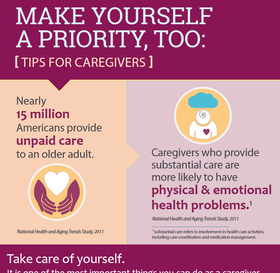|
Use the following room-by-room checklist provided by the National Institute on Aging to alert you to potential hazards and to record any changes you need to make to help keep a person with Alzheimer’s disease safe. You can buy products or gadgets necessary for home safety at stores carrying hardware, electronics, medical supplies, and children's items.
To view the checklist, click the button below.
0 Comments
Local Social Security offices are offering more in-person appointments and have resumed in-person service for people without an appointment.
As in-person service expands, the Social Security Administration expects its offices to become increasingly busy. The SSA strongly encourages beneficiaries seeking assistance to continue to go online, call for help, and schedule appointments in advance. The Social Security Administration has provided a fact sheet for those seeking assistance. To read the fact sheet, click the button below.  Caregiving can be rewarding, but difficult. Learn how you can put yourself back on the priority list. Download the entire infographic, click on the button below. Share this infographic and help spread the word about caring for yourself while caring for others. Copy and paste the URL and post it to your social media account (Twitter, Facebook, etc.). Get Alzheimer's caregiving information and advice in this comprehensive, easy-to-read guide produced by the National Institute on Aging. Learn caregiving tips, safety information, common medical problems, and how to care for yourself.
To view or download the guide, click the button below. Alzheimer’s disease is characterized by the buildup of a protein called beta-amyloid, which forms sticky plaques on the brain and can cause brain cells to die. Testing for the presence of these amyloid plaques on the brain is an important part of Alzheimer’s diagnosis and research.
A study, funded in part by NIA, found that a new blood test can accurately predict the presence of beta-amyloid in the brain. The blood test became even more accurate when the research team took into account the version of APOE (a gene linked to Alzheimer’s risk) that each person had. Scientists note that the blood test performs comparably to existing brain scan- or spinal tap-based tests. However, the blood samples used in the study were from majority white, affluent individuals, and may not be generalizable to other demographic groups. Using blood samples will make it easier to screen healthy people for potential enrollment in Alzheimer’s clinical trials and could help lower costs and expand the availability of diagnostic studies for Alzheimer’s. To learn more, click the button below. The National Alliance for Caregiving’s Circle of Care library is a series of guidebooks dedicated to providing resources, support and information to caregivers caring for someone in a specific disease space. Part of an ongoing effort of NAC, these first three guidebooks were developed with the assistance of both patient-advocacy and consumer-facing partners:
|
Caregiver
Whether in a medical professional setting or personal homes, Caregivers are caring and caring takes energy, wisdom and compassion. This Caregiver Blog is here to give you insight, encouragement and tools, not just to give care but to survive and thrive while doing it. Archives
July 2023
Categories
All
|
 RSS Feed
RSS Feed
